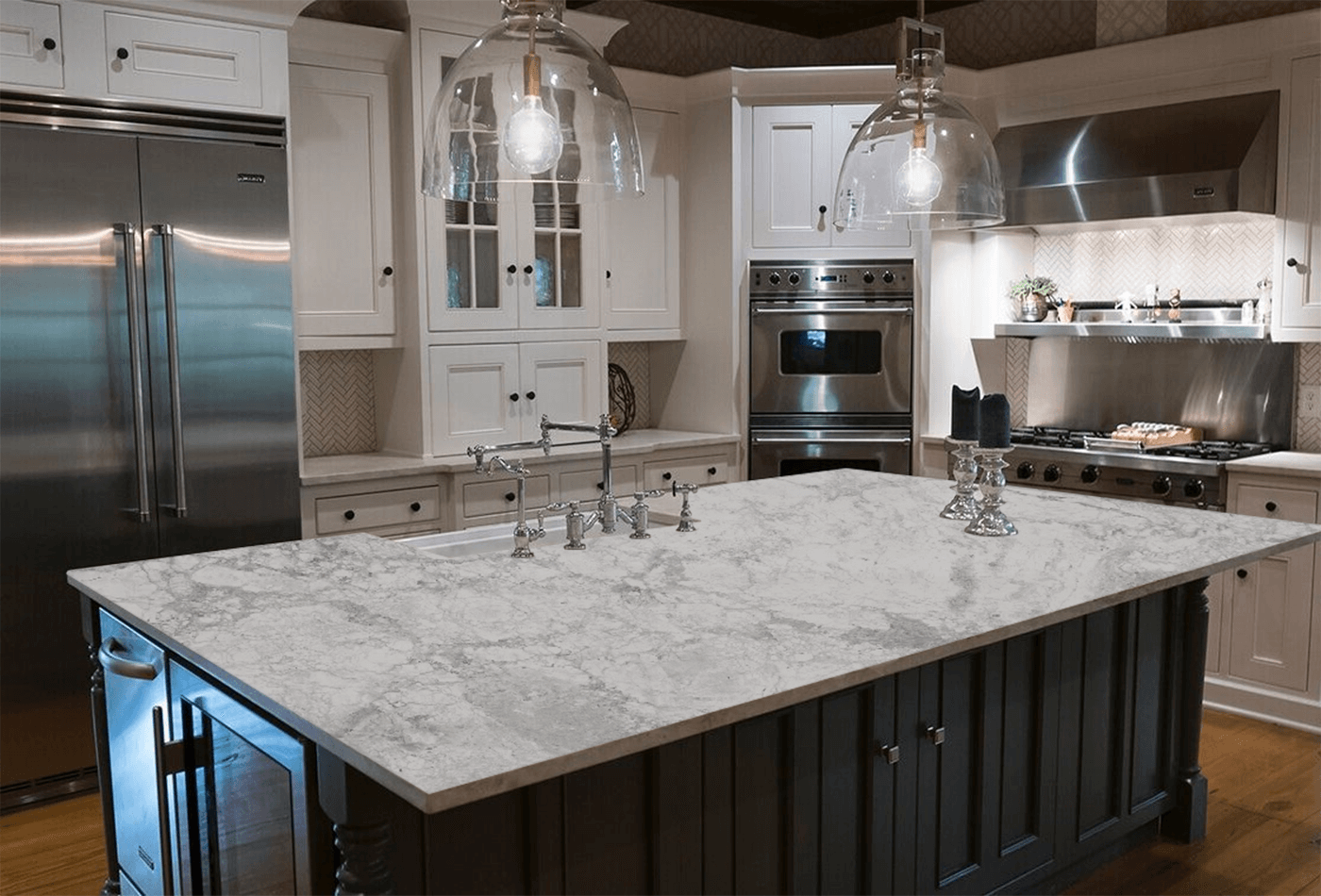What Is Quartzite?
Quartzite is a 100% natural stone formed when sandstone is exposed to extreme heat and pressure deep within the earth. This process—called metamorphism—transforms the stone into an incredibly hard, dense, and durable material.
In simple terms:
Quartzite starts as sandstone and becomes a tougher, more beautiful stone over millions of years.
How Quartzite Is Formed
Here’s the quick version:
-
Sandstone rich in natural quartz is buried deep underground.
-
Heat and pressure fuse the grains together.
-
The stone becomes harder, denser, and more crystalline.
-
The result is quartzite—a high-end, strong, and visually stunning slab.
This unique geologic process creates the dramatic veins, movement, and patterns that quartzite is famous for.
Why Homeowners Love Quartzite
1. It Looks Like Marble But Performs Better
Also many quartzite slabs have soft, flowing veining similar to marble—but without marble’s softness or risk of etching.
2. Incredibly Strong and Scratch-Resistant
Quartzite ranks 7 on the Mohs hardness scale, meaning it’s harder than granite and extremely resistant to everyday wear.
3. Naturally Heat-Resistant
Because quartzite forms under heat and pressure, it handles warm pots and pans better than many other countertop materials.
4. Unique and Natural Patterns
Every slab is one-of-a-kind. No two pieces look the same, giving kitchens and bathrooms a custom, luxury feel.
Common Colors and Styles of Quartzite
Quartzite comes in a surprisingly wide range of colors, including:
-
Beige and cream tones (Taj Mahal, Perla Venata)
-
Bright whites (Cristallo, White Macaubas)
-
Soft grays (Le Blanc, Avohai)
-
Greens and blues (Amazon Green, Emerald Mist, Sea Pearl)
-
Dramatic mixed tones with bold veining (Patagonia, Abstrato)
Whether you prefer something calm or something bold, there’s a quartzite style that fits.
Is Quartzite Easy to Maintain?
Yes—especially compared to marble.
Maintenance Basics:
-
Clean with mild soap and water.
-
Use a stone-safe daily cleaner when possible.
-
Seal once a year (or as recommended based on the slab).
-
Avoid strong acids like vinegar or harsh chemicals.
When sealed properly, quartzite is highly resistant to staining and easy to keep looking new.
Where Quartzite Works Best
Quartzite is also perfect for:
-
Kitchen countertops
-
Bathroom vanities
-
Shower walls
-
Fireplace surrounds
-
Outdoor kitchens (depending on slab type)
-
Accent walls or islands
Thanks to its durability, quartzite works in both busy homes and luxury spaces.
Quartzite vs. Other Stone Options
Quartzite vs. Marble
Quartzite is harder, more durable, and far more resistant to etching.
Quartzite vs. Quartz (Engineered)
Quartzite is natural and heat-resistant, while quartz is man-made and not suited for high heat.
Quartzite vs. Granite
Both are strong, but quartzite often has a more elegant, marble-like appearance.
Is Quartzite Right for You? –
Choose quartzite if you want:
-
A natural stone with luxury aesthetics
-
Better durability than marble
-
A heat-resistant countertop
-
A one-of-a-kind slab with unique veining
-
Long-lasting performance with simple maintenance
It’s a great option for homeowners who want beauty and strength without constant upkeep.

